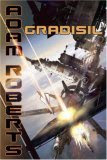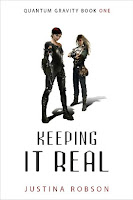Gradisil Short-listed for the PKD Award
 Big news this morning. Adam Roberts’ Gradisil
Big news this morning. Adam Roberts’ Gradisilhas been short-listed for the Philip K. Dick Award. Congratulations, Adam!We’re thrilled. (Remember: sample chapters online here.) Here’s the full press release:
2007 Philip K. Dick Award Nominees Announced
The judges of the 2007 Philip K. Dick Award and the Philadelphia SF Society are pleased to announce seven nominated works that comprise the final ballot for the award:
GREY by Jon Armstrong (Night Shade Books)
UNDERTOW by Elizabeth Bear (Bantam Spectra)
FROM THE NOTEBOOKS OF DR. BRAIN by Minister Faust (Del Rey)
NOVA SWING by M. John Harrison (Bantam Spectra)
GRADISIL by Adam Roberts (Pyr)
ALLY by Karen Traviss (Eos)
SATURN RETURNS by Sean Williams (Ace Books)
First prize and any special citations will be announced on Friday, March 21, 2008 at Norwescon 31 at the Doubletree Hotel Seattle Airport, SeaTac, Washington.
The Philip K. Dick Award is presented annually with the support of the Philip K. Dick Trust for distinguished science fiction published in paperback original form in the United States. The award is sponsored by the Philadelphia Science Fiction Society and the award ceremony is sponsored by the NorthWest Science Fiction Society. Last year’s winner was SPIN CONTROL by Chris Moriarty (Bantam Spectra) with a special citation to CARNIVAL by Elizabeth Bear
(Bantam Spectra). The 2007 judges are Steve Miller, Chris Moriarty (chair), Steven Piziks, Randy Schroeder, Ann Tonsor Zeddies.
For more information, contact the award administration:
David G. Hartwell (914) 769-5545.
Gordon Van Gelder (201) 876-2551
For more information about the Philadelphia Science Fiction Society,
http://www.psfs.org/:
Contact Gary Feldbaum (215) 563-2511
For more information about Norwescon: http://www.norwescon.org/:
Contact NorthWest SF Society: (360) 438-0871
Gradisil Short-listed for the PKD Award Read More »









